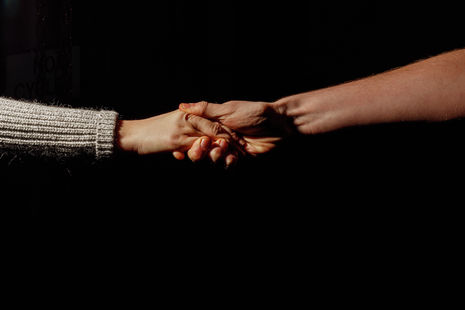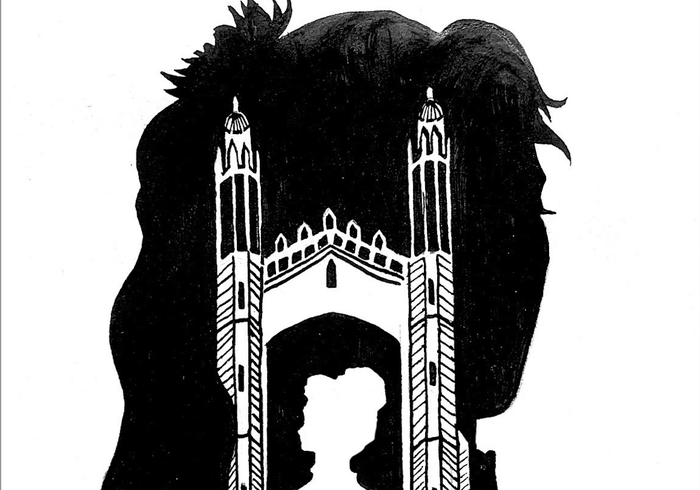Please can we all stop going on Hinge
Dating apps are the illusion of sexual liberation masking a shift to marketplace relationships

It’s hard to go one pub night at Cambridge without someone bringing up Hinge, and now, with most of my friends on the app, it feels inescapable. Hinge can neatly compartmentalise our dating lives, to a mere swipe and shop, where we market ourselves as commodities to others; whether we smoke, how educated we are, and most importantly our height. Dating apps have risen within the last decade to become central to how many young people envision, manage, and explore their dating and sex life, and have capitalised on the expansion of the sexual revolution to a new digitalised generation. While we should celebrate the evolution of sexual freedom and sexual choice which we now all take for granted, the means by which our digitalised generation express this freedom, through dating apps, is far from truly championing sexual liberation.
“Apps like Hinge operate in following and capitalising upon the worst urges and desires among us”
Hinge relies on the commodification of the individual. We list our attributes like labels of vitamins on fruit juice, reducing ourselves down to unrecognisable versions of ourselves in an attempt to mimic superficial standards we would never knowingly implement in reality. In playing the game of dating apps, we enter a sexual marketplace, not propped up by genuine human connection, but by murky algorithms. Apps like Hinge operate in following and capitalising upon the worst urges and desires among us, where we soullessly only judge on looks, use people only for their bodies and pursue self-validation, almost completely forgetting why we wanted to date in the first place. This itself perpetuates a cycle of objectification and a warping of body image as we navigate ‘selling’ ourselves on dating apps which can only operate to degrade our mental health and reflect back onto the relationships we have with others in reality.
In engaging with these dating apps in such a way, already strong social divides are exaggerated. We can simply tap to exclude those who are less educated than ourselves when we would never publicly suggest we would not date someone who didn’t attend university. Through these simple taps, scrolls or swipes we mindlessly undertake, we seem blind to the app’s ability to segregate, divide, and promote individualism. Increasingly dating is conducted through the online marketplace rather than friendship groups which would facilitate relationships themselves.
“We restrict ourselves to a practice of sifting and sorting through individuals”
Further, Tinder, Hinge, or Bumble are not innocent corporations whose only pursuit is free love for all, but rather competitive, rugged enterprises, Hinge in 2022 alone, amassed $284 million in revenue, much of this coming from the sharing of data of its users to third parties - suddenly the pursuit of free love and choice on these apps does not feel all that empowering. Often hidden, small algorithmic, manufactured choices are made by engineers of dating apps to feed off our insecurity to keep us hooked, with our addiction to these apps sustained by our disappointment if we do not receive as many ‘likes’, reinforced with our constant cycles of deleting and then re-installing the apps, thus, producing a dating culture where our own insecurity is explicitly mechanised for corporate gain.
I am not calling back for my father to become a matchmaker for a future husband or wife, or for the re-establishment of shame in having premarital sex, rather we should look deeper at the means of liberation. In using dating apps, we completely bypass the true joys of sexual liberation, of exploration. We restrict ourselves to a practice of sifting and sorting through individuals, and not engaging in communities and spaces which champion true love, freedom, and human connection.
In reflecting upon the Sexual Liberation Movement of the 1960s and 1970s, which challenged archaic institutions of misogyny and limitations of sexual choice, I am sure the activists of that era would feel pride in the social acceptability and normality of sexual freedom, something the movement struggled so long for. However, I’m not sure what they would think of the means we have picked to exercise and engage in this. I imagine The Sexual Liberation Movement would feel disturbed with the deeply individualised, removed framework we have adopted. We have fallen into the pockets of corporations, into a digitalised cave separate from the movement’s vision of true freedom within communal love, exploration and choice.
 News / SU stops offering student discounts8 January 2026
News / SU stops offering student discounts8 January 2026 Comment / Plastic pubs: the problem with Cambridge alehouses 5 January 2026
Comment / Plastic pubs: the problem with Cambridge alehouses 5 January 2026 Science / New year, new room, new you8 January 2026
Science / New year, new room, new you8 January 2026 Theatre / Camdram publicity needs aquickcamfab11 January 2026
Theatre / Camdram publicity needs aquickcamfab11 January 2026 Comment / What happened to men at Cambridge?31 December 2025
Comment / What happened to men at Cambridge?31 December 2025









